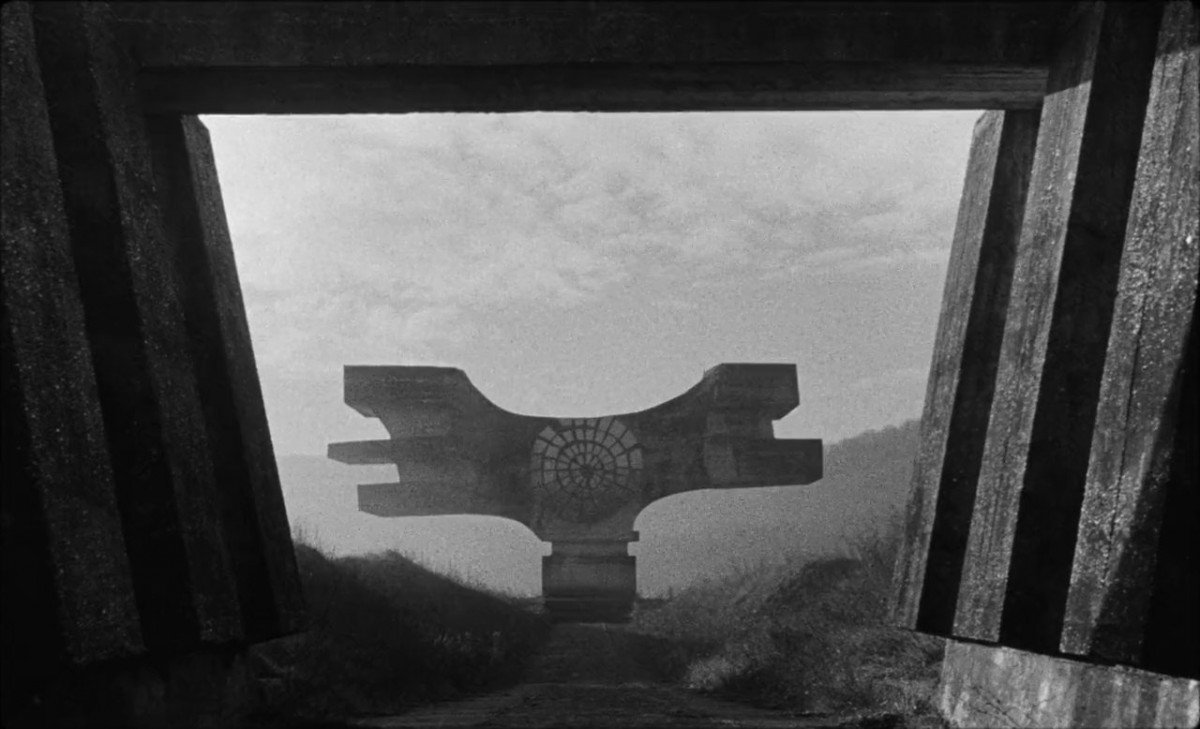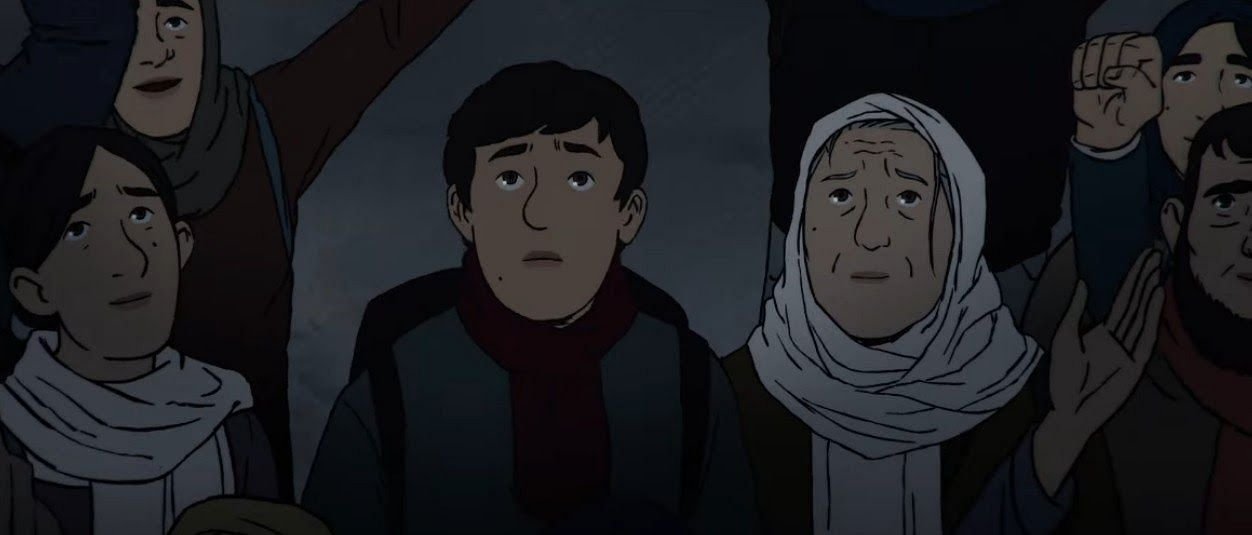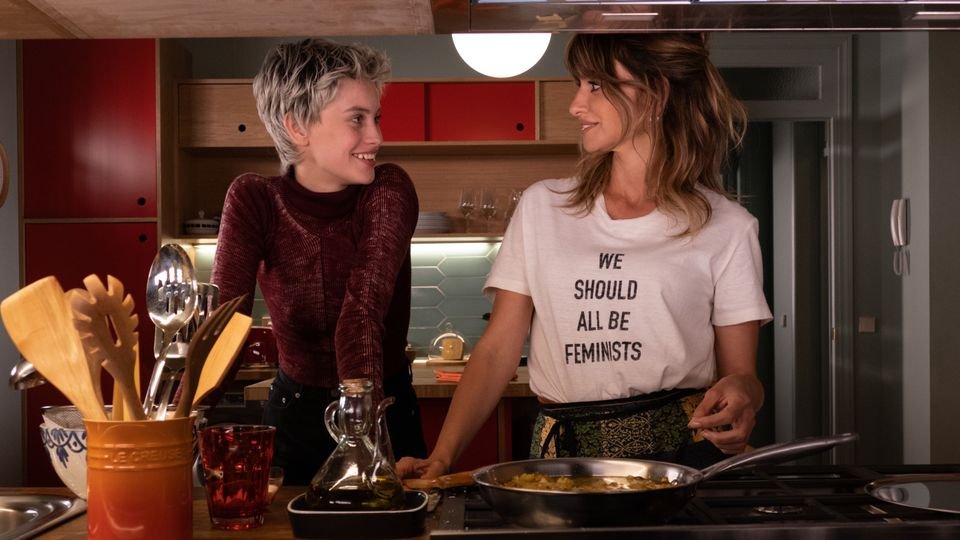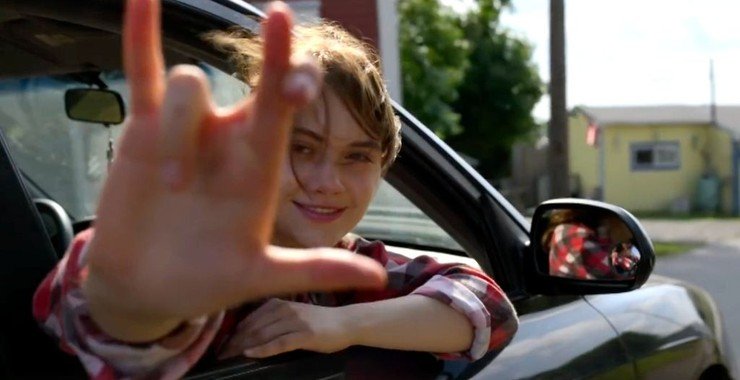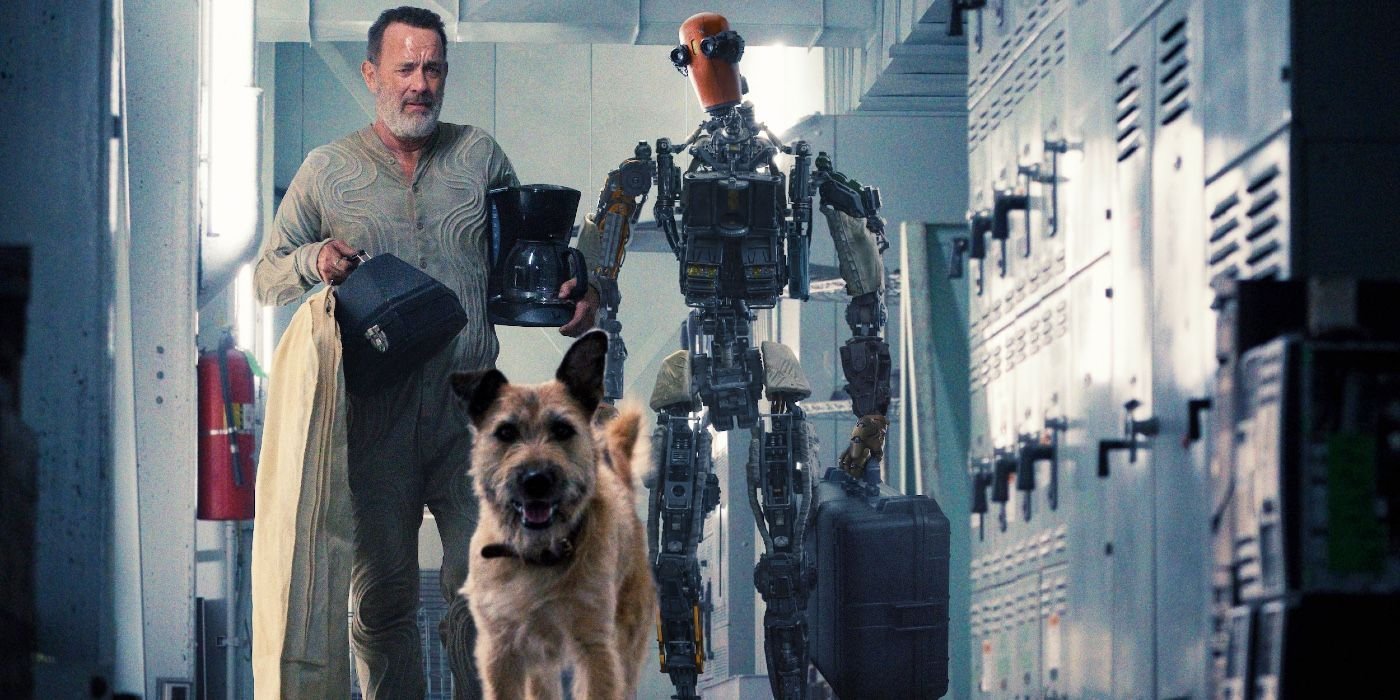I'd Like to Thank the Academy
Actress in a Leading Role Jessica Chastain, The Eyes of Tammy Faye
Olivia Colman, The Lost Daughter
Penélope Cruz, Parallel Mothers
Nicole Kidman, Being the Ricardos
Kristen Stewart, Spencer WHO I THINK WILL WIN: Three months ago I would have sworn Kristen Stewart was a shoo-in. After she was left out of most of the other awards bodies' nominations (most notably the SAG Awards), it's almost a surprise she still got included here. Goldderby.com, which calculates odds on all of these races, now has Olivia Colman as the front-runner. I feel like this category is still pretty competitive, but I guess I would currently put my money on who has the best odds.
WHO I THINK SHOULD WIN: It astonishes me that Spencer resonated with virtually no one . . . except for me; it was, no contest, my favorite movie of 2021. After years of being relatively unimpressed with Kristen Stewart, now I'm dying for her to win this award. And she's not going to!
WHO I THINK SHOULD NOT WIN: I wouldn't be mad at any of these women winning, really. But, I would still argue Jessica Chastain is the least deserving here. An incredible physical transformation is not the same as a great performance, and her performance in The Eyes of Tammy Faye was . . . fine.
Actor in a Leading Role Javier Bardem, Being the Ricardos
Benedict Cumberbatch, The Power of the Dog
Andrew Garfield, tick, tick...BOOM!
Will Smith, King Richard
Denzel Washington, The Tragedy of Macbeth WHO I THINK WILL WIN: This year, it has long been clear that Will Smith is the man to beat for Best Actor.
WHO I THINK SHOULD WIN: Honestly? If I were a voting member of the Academy, I'd vote for Andrew Garfield. He embodies the character of real-life Broadway writer and composer Jonathan Larson so fantastically, he disappears in the part—and without any major prosthetics or makeup to augment the transformation.
WHO I THINK SHOULD NOT WIN: I love Javier Bardem. But, I'm kind of mystified as to how he even got nominated for this particular part. He's good in it, but it's nothing special; it's Nicole Kidman whose performance truly impresses in Being the Ricardos.
Actress in a Supporting Role Jessie Buckley, The Lost Daughter
Ariana Debose, West Side Story
Judi Dench, Belfast
Kirsten Dunst, The Power of the Dog
Aunjanue Ellis, King Richard WHO I THINK WILL WIN: Another one easy to predict: Ariana Debose. And if you haven't seen West Side Story, you need to get on it. Debose is reason enough alone to see it.
WHO I THINK SHOULD WIN: Everyone here is excellent, really. I think Kirsten Dunst, here with her first-ever Oscar nomination, barely edges out the competition, and she gets my vote.
WHO I THINK SHOULD NOT WIN: Judi Dench, I guess? Nothing against her here—I really love her, actually—but she's already got an Oscar. Granted, she hasn't won one since 1998, and it was for all of eight minutes in the ridiculously pretentious Shakespeare In Love. I'd actually love to see her win again, I just don't think it should be for this particular movie (even though I liked Belfast, and I liked her in it).
Actor in a Supporting Role Ciarán Hinds, Belfast
Troy Kotsur, CODA
Jesse Plemons, The Power of the Dog
J.K. Simmons, Being the Ricardos
Kodi Smit-McPhee, The Power of the Dog WHO I THINK WILL WIN: Somewhat to my pleasant surprise, the front-runner here is apparently Kodi Smit-McPhee, a 25-year-old actor who has been impressing me with his acting since he was 12 in The Road (2009) and 13 in Let Me In (2010). I would put my money on him at the moment, but Troy Kotsur also has a shot.
WHO I THINK SHOULD WIN: Kodi Smit-McPhee also gets my vote.
WHO I THINK SHOULD NOT WIN: Being the Ricardos was pretty good, but is revealed by these nominations to be wildly overrated. J.K. Simmons is a fine actor, but he doesn't have a chance in hell of winning this award this year, and that's as it should be.
Animated Feature Film Encanto
Flee
Luca
The Mitchells vs the Machines
Raya and the Last Dragon WHO I THINK WILL WIN: Historically, it's the Pixar film that's the shoo-in, but Luca, which exclusively streamed on Disney+ and was merely pretty good, falters in the shadow of other nominees here. Encanto is presently the front-runner, which had both a theatrical release and is available now on Disney+ as well. And while I liked Encanto slightly less even than Luca (B-minus versus solid B), it appears I am in the minority here, as ever since that one's been streaming, social media has been rampant with takes and, especially, covers of its runaway smash song "We Don't Talk About Bruno."
WHO I THINK SHOULD WIN: This should be no contest, but I am not likely to get what I want here. Flee, about a gay Aghan refugee in Denmark, is not only the first film to be nominated the same year for Animated Feature, Documentary Feature and International Feature, but it's superb. It should win in all three categories. My guess is it will win in just one of them.
WHO I THINK SHOULD NOT WIN: I have no particularly passionate objection to any of these movies, but by a slim margin, I'd say Raya and the Last Dragon is the least deserving. Funny how three of these nominees are Disney films (two Disney Animation Studios and one Pixar), and all three of them are the weaker entries here. Setting Flee aside, among the other four that were clearly made for children, The Mitchells vs the Machines is the most sophisticated accomplishment in terms of both writing and animation.
Cinematography Dune, Greig Fraser
Nightmare Alley, Dan Laustsen
The Power of the Dog, Ari Wegner
The Tragedy of Macbeth, Bruno Delbonnel
West Side Story, Janusz Kaminski WHO I THINK WILL WIN: Given its staggering 12 nominations overall, it feels like The Power of the Dog has a kind of surprising shot here—but, not nearly to the degree that Dune does. And it's not like Dune is any slouch in this year's overall race; it has 10 nominations of its own.
WHO I THINK SHOULD WIN: All of these films are shot beautifully. Dune, however, was the most memorably stunning. Even if you can't always understand what's going on, you cannot take your eyes off that movie.
WHO I THINK SHOULD NOT WIN: I'm going to say The Power of the Dog here, even though I truly loved that movie, and even think, as I said, it was beautifully shot. But, I could never get past the knowledge that I was actually looking at New Zealand when it was supposed to be 1925 Montana. Some of the landscapes are almost otherworldly, in a way I'm not convinced can be found anywhere in Montana.
Production Design Dune Nightmare Alley
The Power of the Dog
The Tragedy of Macbeth
West Side Story WHO I THINK WILL WIN: I have a feeling Dune will sweep a bunch of the awards that are not for acting, directing or Best Picture, which would include this one.
WHO I THINK SHOULD WIN: This is kind of a tough call. I'm tempting to say this is the one award I think The Tragedy of Macbeth deserves—it's easy to credit its cinematography, but the entire film was shot on impeccably designed, quasi-brutalist soundstage sets. I wouldn't be mad at a win there. But, my vote still goes to Dune, which is stunningly successful at world building as part of what was long thought to be an impossible task of literary adaptation.
WHO I THINK SHOULD NOT WIN: All of these films have great production design, to be honest. No further notes.
Costume Design Cruella, Jenny Beavan
Cryano, Massimo Cantini Parrini and Jacqueline Durran
Dune, Jacqueline West and Robert Morgan
Nightmare Alley, Luis Sequeira
West Side Story, Paul Tazewell WHO I THINK WILL WIN: Gold Derby cites Cruella as the frontrunner in this category, and I fear they may be right—it's the only movie that blatantly calls attention to its costumes, as its title character is literally a fashion designer.
WHO I THINK SHOULD WIN: Dune is tempting, as it is for all of these design categories, but in this case I think I'm going for West Side Story. And that movie deserves more than just one Oscar.
WHO I THINK SHOULD NOT WIN: I find Cruella's odds irritating. It's too easy, lazy, low hanging fruit. Pay more attention, people!
Documentary (Feature) Ascension
Attica
Flee
Summer of Soul (..Or, When the Revolution Could Not Be Televised)
Writing with Fire WHO I THINK WILL WIN: I often have seen so few of these films by the time the nominees are announced that I don't even include the category in my analysis, and even this year I have only seen one of them (Flee). That said, I have heard enough about Summer of Soul from the many movie podcasts I listen to, to know that it is the clear front runner. Questlove's documentary about the Harlem Cultural Festival in 1969 is widely beloved.
WHO I THINK SHOULD WIN: As always, I am pulling for Flee. But, I'm not really being fair. If a bunch of people say Summer of Love is better, who am I to argue?
WHO I THINK SHOULD NOT WIN: After doing a bit of spot research, every single one of these films sounds amazing, and I can't believe I've never heard of three of them: Ascension (Paramount+) is about the pursuit of the "Chinese Dream" in modern China; Attica (Prime Video) is, as you likely expect, about the 1971 prison rebellion; and Writing with Fire (on DVD and VOD March 1) is about India's only newspaper run by Dalit (lowest caste) women. Instead of saying any of these don't deserve an Oscar, I'm going to seek out every one of these films.
Directing Kenneth Branagh, Belfast
Ryusuke Hamaguchi, Drive My Car
Paul Thomas Anderson, Licorice Pizza
Jane Campion, The Power of the Dog
Steven Spielberg, West Side Story WHO I THINK WILL WIN: This one might be the biggest "duh" of them all: Jane Campion. I'm baffled that Denis Villeneuve was not nominated here for Dune, but even if he were, Campion would remain the front runner.
WHO I THINK SHOULD WIN: Jane Campion. She is one of only seven women ever nominated for Best Director, and she's the first in history to be nominated twice. It will be great to see her make history by winning.
WHO I THINK SHOULD NOT WIN: Spielberg did a great job updating West Side Story, but come on. That man already has three Oscars. He doesn't need to get greedy!
Film Editing Don't Look Up, Hank Corwin
Dune, Joe Walker
King Richard, Pamela Martin
The Power of the Dog, Peter Sciberras
tick, tick...BOOM!, Myron Kerstein and Andrew Weisblum WHO I THINK WILL WIN: Gold Derby says Dune is the front runner, and I have no reason to disagree with them. As indicated previously, Dune may well sweep the technical categories.
WHO I THINK SHOULD WIN: I'm pulling hard for Dune in this category, actually. I had to see it twice to fully appreciate it, but the editing in that movie, particularly considering its sweeping, epic scope, is—to be a little on the nose—stellar.
WHO I THINK SHOULD NOT WIN: Okay, so now we start in with the four nominations for the simultaneously polarizing and wildly overrated Don't Look Up, a movie that's far too pleased with itself while also being too on the nose. I really wanted to enjoy this movie and then found it fundamentally useless. And by the way? At 138 minutes, as a supposed comedy, it's far too long. The editor didn't even do his fucking job!
International Feature Drive My Car, Japan
Flee, Denmark
The Hand of God, Italy
Lulana: A Yak in the Classroom, Bhutan
The Worst Person in the World, Norway WHO I THINK WILL WIN: Seems hard to predict. God Derby has Drive My Car as the front runner, and given its wild critical acclaim (far greater than I quite understand), that tracks. But, The Worst Person in the World has real momentum, and that combined with it being a romantic comedy could push it ahead.
WHO I THINK SHOULD WIN: Oh, my god. How many times do I have to say it! Flee. Unfortunately, it's not the frontrunner in any of its three categories, which is a travesty of justice. On the other hand, Gold Derby has it ranked #2 in the odds for all three categories, so you never know.
WHO I THINK SHOULD NOT WIN: I actually saw Paolo Sorrentino's The Hand of God, and although I found it relatively enjoyable—nice to look at—I also really could not make sense of it. A win in this category would be truly baffling.
Makeup and Hairstyling Coming 2 America
Cruella
Dune
The Eyes of Tammy Faye
House of Gucci WHO I THINK WILL WIN: Another one that's low hanging fruit: The Eyes of Tammy Faye will probably get this, just because of the radical transformation of Jessica Chastain into Tammy Faye Bakker. Turning Andrew Garfield into Jim Bakker wasn't nothing either. Either way, it's showy in a way that unfortunately overshadows more nuanced achievements in other films.
WHO I THINK SHOULD WIN: I'm not above leaning into contradictions when it comes to low hanging fruit: Tomothée Chalamet's hair is almost—almost!—too perfect in Dune. Give that movie the Oscar!
WHO I THINK SHOULD NOT WIN: House of Gucci is way too smugly bombastic to deserve any Oscars.
Music (Original Score) Don't Look Up, Nicholas Britell
Dune, Hans Zimmer
Encanto, Germaine Franco
Parallel Mothers, Alberto Iglesias
The Power of the Dog, Jonny Greenwood WHO I THINK WILL WIN: Gold Derby's listed odds have Dune dropping, but still in the frontrunner position. Honestly, I think it's too early to tell. I didn't pay that much attention to the score in these movies anyway.
WHO I THINK SHOULD WIN: The only one I even vaguely remember, really is Dune. So, okay sure. Give Dune this award.
WHO I THINK SHOULD NOT WIN: Seriously. Do not give Don't Look Up any Oscars. Not even as a consolation prize!
Music (Original Song) "Be Alive," from King Richard, Music and Lyric by DIXSON and Beyoncé Knowles-Carter
"Dos Oruguitas," from Encanto, Music and Lyric by Lin-Manuel Miranda
"Down to Joy," from Belfast, Music and Lyric by Van Morrison
"No Time to Die," from No Time to Die, Music and Lyric by Billie Eilish and Finneas O'Connell
"Somehow You Do," from Four Good Days, Music and Lyric by Diane Warren WHO I THINK WILL WIN: This really feels like no contest. Beyoncé is by far the most famous contender here, plus her song is actually the best of these five. It seems logical that she will win. Gold Derby says "No Time to Die" is the frontrunner but I'm still standing by this.
WHO I THINK SHOULD WIN: I'm also in Beyoncé's corner with this one. By comparison, all of the other songs are forgettable.
WHO I THINK SHOULD NOT WIN: I usually pick just one here, but in this case I have two. First, Van Morrison is an anti-vaxxer, so, fuck that guy. Second, I actually like Billie Eilish generally speaking, but her "No Time to Die" is the dullest Bond theme song in ages.
Visual Effects Dune
Free Guy
No Time to Die
Shang-Chi and the Legend of the Ten Rings
Spider-Man: No Way Home WHO I THINK WILL WIN: This isn't even a fair contest. On average, the visual effects among these five movies are . . . pretty good. All competent, but only one truly stands out, and that is—you guessed it!—Dune.
WHO I THINK SHOULD WIN: If Dune can get even one Oscar win, it absolutely has to be this one.
WHO I THINK SHOULD NOT WIN: Shang-Chi and the Legend of the Ten Rings because such a cliched, swirling CGI mess in its final climactic sequence, it feels like it got included here only because it was a blockbuster with some box office success. That doesn't mean the effects were as good as they could, or should, have been.
Writing (Adapted Screenplay) CODA, Screenplay by Siân Heder
Drive My Car, Screenplay by Ryusuke Hamaguchi, Takamasa Oe
Dune, Screenplay by Jon Spaihts and Denis Villeneuve and Eric Roth
The Lost Daughter, Written by Maggie Gyllenhaal
The Power of the Dog, Written by Jane Campion WHO I THINK WILL WIN: Apparently The Power of the Dog and The Lost Daughter are neck and neck at the moment. I'm still officially predicting The Power of the Dog for the win, as its far higher number of overall nominations will likely help it in most categories.
WHO I THINK SHOULD WIN: Gold Derby's odds currently place Dune dead last in this category, which is truly astonishing to me. I have not read the book on which it's based, but I have known for years about the perceived challenges of adapting it successfully for a film (exhibit A: the notorious 1984 David Lynch film). This movie is doubly impressive for how superbly crafted it is.
WHO I THINK SHOULD NOT WIN: Again, I have nothing against any of these films. I even love that the Japanese film got four nominations (International Feature being the only one it's likely to win). But, it also has an incredibly slow script that relies far too heavily, in my opinion, on a working knowledge of Chekhov's Uncle Vanya, which I don't have at all. And that made it a lot more difficult to lose myself into the world of its story.
Writing (Original Screenplay) Belfast, Written by Kenneth Branagh
Don't Look Up, Screenplay by Adam McKay; Story by Adam McKay & David Sirota
King Richard, Written by Zach Baylin
Licorice Pizza, Written by Paul Thomas Anderson
The Worst Person in the World, Written by Eskil Vogt, Joachim Trier WHO I THINK WILL WIN: This might just be the only Oscar, of three nominations, that Licorice Pizza actually wins—giving Paul Thomas Anderson his first Academy Award, after eleven nominations.
WHO I THINK SHOULD WIN: These categories are always interesting, because since they have long been separated into "adapted" and "original," ten movies get nominated for writing every year, making it the closest analogue to the current state of Best Picture. Two of the ten movies here get the award, though, and sometimes only one of the two categories gets the most high profile nominees—or at least, the majority of the ones that would be nominated if "writing" were just limited to five. I can't judge The Worst Person in the World because I haven't seen it yet; it doesn't open locally until this Friday (annoying!). But, among the other four, I suppose my vote would actually go to Belfast, which is mercifully not overlong (98 minutes) and is very well constructed.
WHO I THINK SHOULD NOT WIN: Here we go again. If there is any award Don't Look Up deserves the least, it's this one. Yes, even less than Best Picture. If that movie wins this award I'm going to jump off a cliff. So you all better fucking make sure that doesn't happen!
Best motion picture of the year Belfast
CODA
Don't Look Up
Drive My Car
Dune
King Richard
Licorice Pizza
Nightmare Alley
The Power of the Dog
West Side Story WHO I THINK WILL WIN: Sometimes, a movie with tons of nominations comes away with nothing—like The Irishman at the 2020 Oscars. I don't think that will be the story this year, though, and it will be a genuine upset if The Power of the Dog doesn't win.
WHO I THINK SHOULD WIN: The Power of the Dog is the only one of these ten films that I gave a solid A, so that should make my choice pretty obvious. (Incidentally, I gave two of the others an A-minus: CODA and West Side Story.)
WHO I THINK SHOULD NOT WIN: All together now! "🎶 Fuck, fuck, fuck. Fuck Don't Look Up! 🎶"
(Nominations for documentary short, animated short, live action short, and sound were also announced, but I don't know enough about them to make any worthwhile observations.) The 94th Academy Awards telecast will air on ABC Sunday, March 27 at 4 p.m. Pacific Time. .

